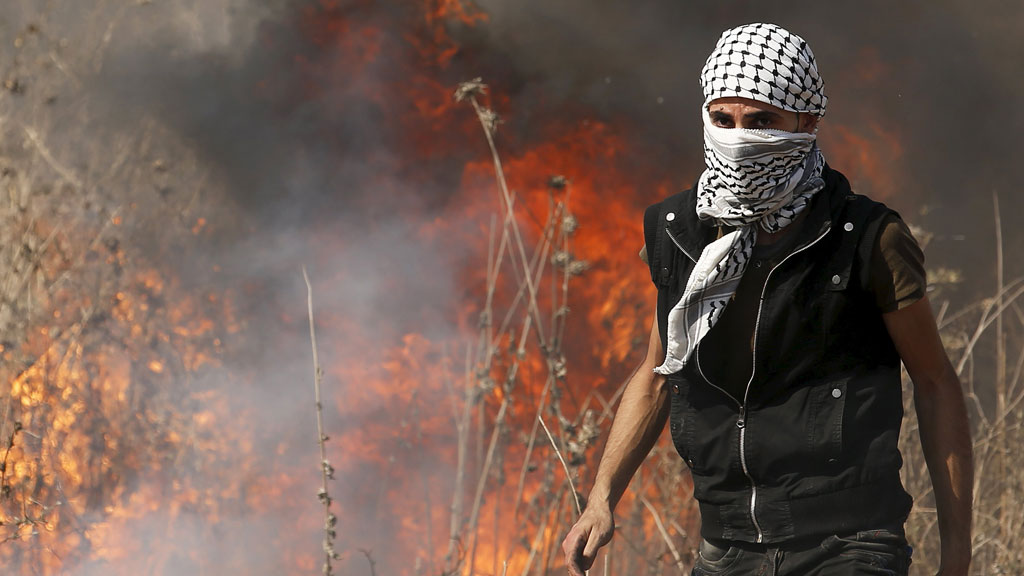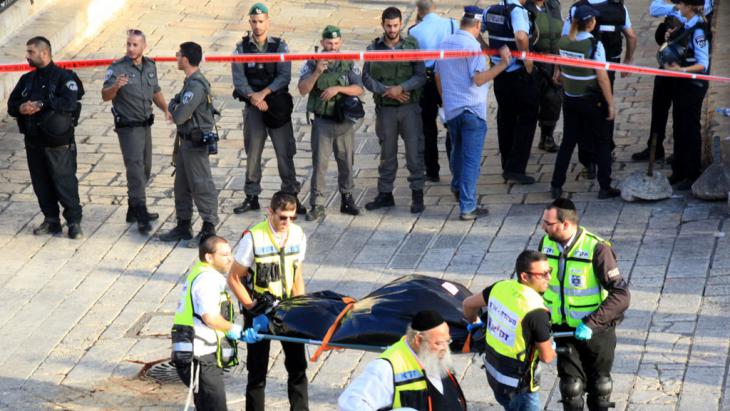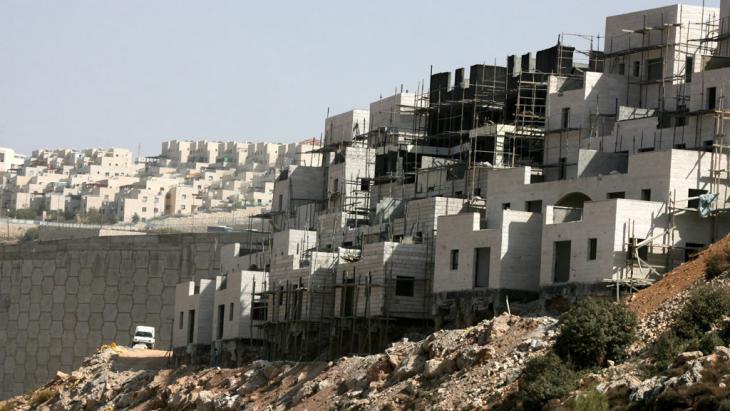Third intifada looming

A new generation has grown up in the Palestinian territories following the aftermath of the second intifada and in the shadow of the failed Oslo Accords. They are neither prepared to accept the present situation, nor let themselves be fobbed off with empty promises. Instead, they are taking up the cause of their parents' generation, demanding self-determined lives in freedom and dignity, as they attempt to shake off the yoke of Israeli rule.
Clashes between Israelis and Palestinians, the demonstrations and attacks – this time with knives – are once again increasing. Israel′s prime minister, Benjamin Netanyahu, is struggling to find any response to the renewed escalation that might help calm the troubled waters. Unlike previous uprisings, the protesters and attackers have thus far been acting independently of both the West Bank′s ruling Fatah movement and of Hamas.
Fanning the flames
As a result, monitoring the offenders and activists or taking action against them is proving all the more difficult. Rather than contributing to a de-escalation, the measures now implemented by Netanyahu are doing just the opposite. The use of live ammunition against Palestinians – armed with stones and incendiary devices – demonstrating at the Wall, West Bank checkpoints, or on the borders with Gaza, has already led to further deaths and is only serving to fan the flames.
Why can′t Israel and Palestine find peace? One reason is that for decades the Israeli-Palestinian conflict has merely been administered, with scarcely any serious attempts being made at a solution since the Oslo talks. Palestinians even doubt the sincerity of Israel′s commitment to resolving the conflict through the Oslo Accords.

Instead, many are convinced that the Israeli government only agreed to the establishment of the Palestinian Authority to rid itself of the burden of being responsible as the occupying power for public services in Palestinian towns in the occupied territories. Statements such as that made by Deputy Defence Minister Eli Ben-Dahan last Saturday that "the Palestinians have to understand they won't have a state and Israel will rule over them" only confirm the suspicions of those who have always distrusted Israeli politicians' commitment to a two-state solution.
Spotlight on an unresolved conflict
Sometimes, it seems that people have almost forgotten that the Israeli-Palestinian conflict still remains unresolved. The current riots serve to remind them. Israel's achievement of statehood in 1948 is associated with expulsions and expropriations for which it has yet to take responsibility, let alone offer restitution. Hamas in turn has still not recognised Israel's right to exist. The Palestinians increasingly perceive the ongoing Israeli occupation as a threat to their very existence. Meanwhile, settlements continue to be built in the West Bank, leading to further evictions and land expropriation by the state of Israel and the settlers, and precluding the formation of a future Palestinian state on contiguous territory.
Many Palestinians are being deprived of their livelihoods. Settler-instigated arson attacks on their fields, for instance, makes life even more difficult. The Israeli military usually just stands by and watches, or even protects the settlers as they commit offences.
Even serious crimes committed by the settlers, such as the arson attack on the Dawabsheh family in Duma that killed several family members, fail to be prosecuted. The international community never tires from pointing out that the settlement of a nation's own people on occupied territory is illegal under international law, but the Israeli government largely continues to ignore these admonishments.

Forget education and a decent job
Jerusalem paints a similarly depressing picture. The east of the city, inhabited by Palestinians, was annexed by Israel in 1980. Residents were given the right to reside in the city, but not Israeli citizenship. After decades of neglect, ghetto-like neighbourhoods have now formed there, where children grow up with little chance of education and no hope of a decent job.
After the Israeli conquest, settlements were built in the eastern districts, making it nearly impossible to divide the city into an Israeli and a Palestinian section in the event of a future peace agreement. In many East Jerusalem neighbourhoods, Jewish Israelis are acquiring individual houses or building large residential complexes, in tangible confirmation of their claim to all of Jerusalem as the eternal, indivisible capital of the state of Israel. Clashes frequently occur at these locations with Palestinian children and adolescents, on whom draconian punishments are visited for throwing stones or incendiary devices – since September, such offenders can expect to serve at least four years in prison, while their parents face heavy fines.
In view of all these developments, the majority of Palestinian society is doubtful about the course taken by President Mahmoud Abbas. And as trust in him and his Fatah movement wanes, grassroots groups are taking up the cause on their own initiative, refusing to subordinate themselves or to associate themselves with a specific agenda. Those currently protesting and committing acts of desperation are mostly young people and women. The older generation may be dissatisfied as well, but they seem to have resigned themselves to the course taken by Abbas.
The only way to achieve a lasting peace, despite the reluctance of Israeli government members to admit it, is to redouble all efforts to end the occupation and implement a two-state solution. The failure of the Kerry initiative early this year highlighted the need to replace direct bilateral talks between occupiers and the occupied with a different format.
The USA is still considered the main mediator in the conflict. Without input from the Americans, neither the European Union nor the Middle East Quartet is likely to push for new talks. Currently, however, Washington is playing a waiting game and conducting its own policy review. The current crisis will hopefully spark a renewal of commitment by the international community. The latest unrest clearly demonstrates that younger generations of Palestinians in particular are not ready to resign themselves to the status quo.
Ingrid Ross
© Qantara.de 2015
Translated from the German by Jennifer Taylor
Ingrid Ross is director of the regional office of the Friedrich Ebert Foundation (FES) in East Jerusalem. Prior to her activities in the Palestinian territories, she worked as advisor for the Middle East at the headquarters of the FES in Berlin, and as a junior expert in the FES office in Herzliya
